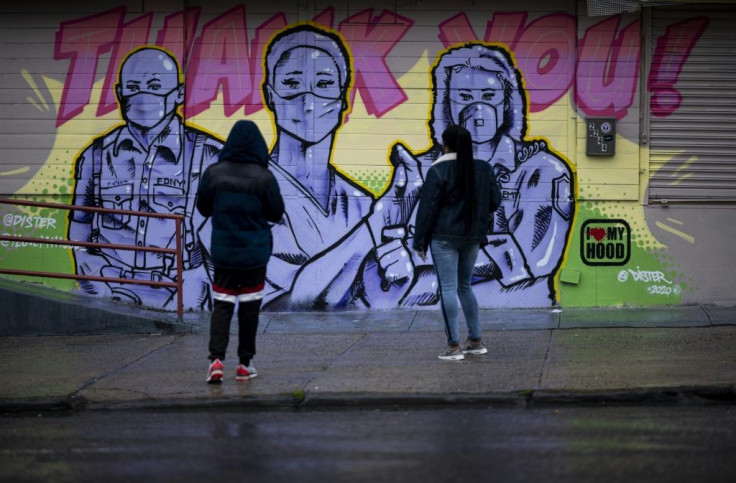Manhattan ER Doctor On 'Front Lines' Of Coronavirus Pandemic Dies By Suicide

KEY POINTS
- Dr. Lorna Breen, the head of the emergency department at NewYork-Presbyterian Allen Hospital, died by suicide
- Another health worker, a 23-year-old paramedic, also recently took his life
- According to mental health experts, PTSD as a result of the coronavirus pandemic is real, especially for the health workers who have to witness it directly as well as those who lost loved ones
A top Manhattan doctor died by suicide Sunday after battling the coronavirus on the "front lines." Her death came just days after another health worker committed suicide.
Dr. Lorna Breen was the head of the emergency department at NewYork-Presbyterian Allen Hospital where she was one of the doctors who treated many COVID-19 patients. She, herself, contracted the coronavirus and went back to work after about a week and a half of recuperating, but the hospital sent her home and her family brought her to Charlottesville, Virginia.
Charlottesville Police Department spokesman Tyler Hawn told The New York Times that officers responded to a call seeking medical assistance last Sunday, and the victim was taken to the hospital but eventually succumbed to self-inflicted injuries.
According to Dr. Breen’s father, Dr. Phillip Breen, she had no history of mental illness, but something seemed wrong the last time that they spoke when she described the ordeal of having patients die even before they were taken out of the ambulances. In fact, NewYork-Presbyterian Allen in Manhattan at times had as many as 170 COVID-19 patients.
"She was truly in the trenches of the front line," Dr. Phillip Breen told The New York Times. "Make sure she's praised as a hero, because she was. She's a casualty just as much as anyone else who has died."
She was honored by NewYork-Presbyterian/Columbia. NewYork Presbyterian network also includes the Columbia University Irving Medical Center.
"Dr. Breen is a hero who brought the highest ideals of medicine to the challenging front lines of the emergency department," NewYork-Presbyterian/Columbia's statement said. "Our focus today is to provide support to her family, friends and colleagues as they cope with this news during what is already an extraordinarily difficult time."
Dr. Breen's death came just two days after another health worker, 23-year-old John Mondello, took his own life using his retired NYPD cop father's gun.
Paramedic Mondello was a rookie at EMS Station 18 in The Bronx, the station that handles one of the biggest 911 call volumes and is one of the busiest in the city. At the time of his death, Mondello had only been working at EMS Station 18 for less than three months, having graduated from the FDNY's EMS Academy in early February and getting right into the thick of the coronavirus pandemic.
Before his death, Mondello reportedly told a friend he was experiencing anxiety, having to witness a lot of deaths and not being able to save their lives.
The head of Stanford University's International Society for Traumatic Stress Studies, Professor Debra Kaysen, told the New York Post that post traumatic stress disorder (PTSD) due to the pandemic is real, especially for the health workers who have to witness it directly as well as those who lost loved ones.
"The group that is most at risk are the front-line health care workers," Kaysen told the New York Post.
Although PTSD is often associated with war veterans and people who experienced abuse, the truth is it can happen to anyone at any age who has been exposed to threatening events.
If you have thoughts of suicide, confidential help is available for free at the National Suicide Prevention Lifeline. Call 1-800-273-8255. The line is available 24 hours, every day
© Copyright IBTimes 2024. All rights reserved.





















